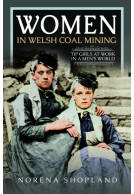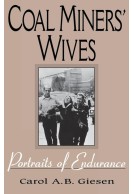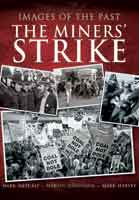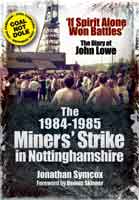Miners’ Strike
Remembering the strike of 1984-85 and the history of the industry.
Check out the Pen & Sword Blog for some exclusive content from authors Norena Shopland, Brian Elliott and Jane Ainsworth...
On the blog...
Yorkshire's Flying Pickets (Paperback)
Bruce Wilson's diary is an honest and action-packed account of what life was like for five young men on picket duty during the longest and most bitter industrial dispute in modern times: the 1984-85 miners' strike. Bruce and, younger brother Bob, along with mates Shaun, Darren and 'Captain' Bob crammed themselves into an old car or 'battlebus' and, despite police barriers and blockades, journeyed into Nottinghamshire, Derbyshire and elsewhere in order to express their views and support their union in a country which they thought was free. We are able to experience at first-hand and day by day events, which were often frightening, occasionally humorous but never dull; and also gain insight into major conflicts at Orgreave, Brodsworth, Rossington and Maltby as well as at locations further afield. Towards the end of the strike our flying pickets found themselves on home ground, demonstrating at Silverwood and nearby collieries, including Cortonwood where many observers consider the great strike began. Any former striking miner will find the book compulsive reading and despite the passage of twenty years the journey will seem like yesterday. But there is a great deal for us all to appreciate from this remarkably frank and moving testimony.Victims of the Oaks Colliery Disaster 1847 (Paperback)
The Centenary of the First World War and discovering more about the fates of two great uncles inspired the author of this book, Jane Ainsworth, to initiate several projects in Barnsley. It also led to the publication of her first two books by Helion & Company. Great Sacrifice: the Old Boys of Barnsley Holgate Grammar School in the First World War (March 2016) and Keeping Their Beacons Alight: the Potter Family of Barnsley and their Service to our Country (November 2017) have received acclaim for their tenacity in revealing detailed stories about the individuals and families.This new book has developed as a result of Jane's deep interest in her coal mining ancestors - both paternal great grandparents, Charles Ernest Hardy and Edwin Hall Bailey, worked in collieries in the Barnsley area as did their descendants. At the end of 2017, Jane transcribed a ledger containing the minutes of the Colliers’ Relief Fund Committee for the 1847 Oaks Colliery Explosion for Barnsley Archives. This stimulated her empathy and curiosity about the lives of the people referred to in the minutes - widows, orphans and a few survivors of the disaster – as well as the 73 victims. She was determined to research all of the individuals in as much detail as possible, despite the challenge of limited early records, to flesh out their stories and to pay tribute to the families of mineworkers whose lives at that time were considered of little value to the colliery owners and managers. Once again, Jane has created ‘a memorial book like no other’ as a contribution to Barnsley’s mining heritage.
Women in Welsh Coal Mining (Hardback)
Tip Girls at Work in a Men’s World
We tend to think of coal mining as predominantly a male occupation, with women confined to roles as wives and support workers. Women worked at the coal face for many years before they were banned in 1842. However, mere legislation was not going to stop them - many continued to work underground, with mine owners making little attempt to stop them due to the low wages paid to women. Some would dress and pass as men to fool visiting inspectors. For the majority though, they worked on the pit brow where they received the coal, cleaned, sorted and cut it to uniform size. Dirty, laborious work, including many accidents and deaths, done by women and girls, some as young as 10 years old.Society was appalled, and harshly criticised women (but not men) for working in such environments and so close to male workers. Find a respectable job, like domestic service, they were told - despite the fact that few jobs for women were available in such industrialised areas. Like the more famous Pit Brow Lasses of Lancashire, the Tip Girls were castigated for having ‘unsexed’ themselves, accused of immorality, of being unfit wives and mothers and society went on a mission to save them. But the Tip Girls did not want to be saved.
For nearly a hundred years, these women fought society and Parliament to keep their jobs and clear their reputations. Norena Shopland tells their story for the first time. New research from census returns and newspaper accounts have uncovered over 1,500 named women who worked in the Welsh coalfields – only a few could be included in this book - but it shows how much more work is needed in order for us to continue to celebrate these remarkable women.


















